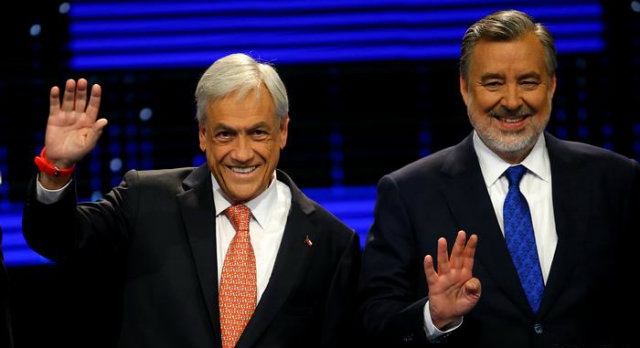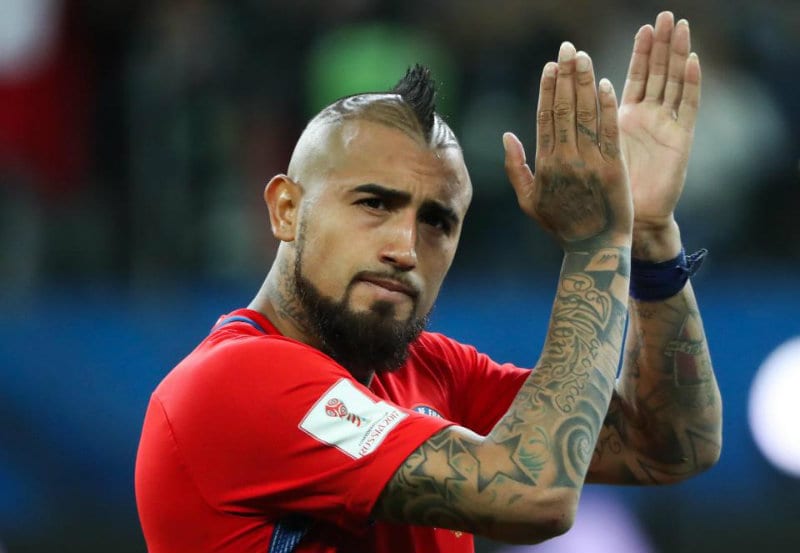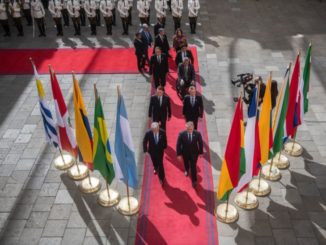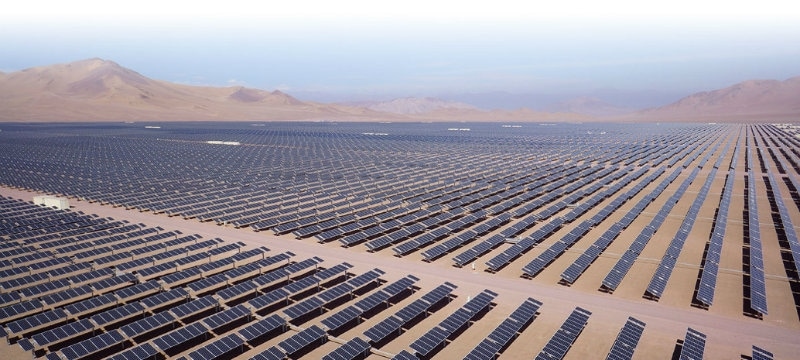
SANTIAGO – Center-left Senator Alejandro Guillier and conservative billionaire Sebastian Piñera will go head to head in a runoff for Chile’s presidency on Sunday, after securing the top two spots in the Nov. 19 first-round vote.
About 14 million Chilean citizens with the right to vote will elect the next occupant of the presidential seat at La Moneda Palace in the world’s top copper producer.
Although fortunately it was just a threat, the explosive devices found last Sunday in the headquarters of three center-leftwing parties added tension to next round of presidential election in the South American country.
The Radical (PR) and Socialist (PS) parties filed reports before the Prosecutor’s office due to two non-detonated explosive devices that were found in their headquarters. A similar situation was denounced by the Democratic Christian (DC) party.
That kind of situation cannot happen in democracy, Presidents Ernesto Velasco (PR) and Alvaro Elizalde (PS) noted after meeting with South Regional Metropolitan Prosecutor Raul Guzman.
In the case of the DC, the bomb was found on November 1, before the first round of presidential election on November 19.
Next President: Piñera or Guillier?
The first round’s result – Piñera won with 36.6 per cent, compared with pollsters’ predictions of about 44 per cent, while Guillier, a former television anchor, came second with 22.7 per cent and Beatriz Sanchez, head of the newly created left-wing Frente Amplio alliance, third with 20.3 percent – sent the stock market reeling, plummeting almost 10 per cent in the following weeks.

Piñera, whose wealth is estimated at $2.7 billion by Forbes, has pledged to more than double economic growth, create 600,000 jobs and narrow the budget deficit. He likes to point to his track record as president between 2010 and 2014, when a copper boom helped growth to average 5.4 percent a year.
Guillier, who was elected to the Senate in 2013, represents the core of President Michelle Bachelet’s divided center-left coalition that implemented a much-criticized reform program aimed at reducing inequality, and presided over four years of economic stagnation.

He has promised to deepen the progressive tax, education and labor reforms of ideological ally Bachelet. His spending plan includes investments in housing and infrastructure and carries a price tag of $10 billion.
(VIDEO) Who will be Chile’s next President: Conservative Piñera or Socialist Guillier?
Critical for both candidates’ chances are the voters for the radical leftwing coalition Frente Amplio that stunned pundits by securing 20.3 per cent of the vote, more than twice pollsters’ predictions.
For more on the surprise rise of Frente Amplio, click here.
Of the two challenges for the two hopefuls, one of them is the abstention of the first round and the capacity of contenders to draw on them, and secondly, most significant Sanchez, who finally has endorsed presidential hopeful Guillier.
Sanchez said Piñera’s suggestion that ballots had been tampered with in the first-round election had changed her mind about staying quiet on whom she would vote for in the run-off. “That crosses the line and that’s why today I’ve decided…to vote against Sebastian Piñera,” Sanchez told journalists. “My vote will be for Alejandro Guillier.”

Piñera, who became the first right-centre leader to win the post since the fall of General Augusto Pinochet’s dictatorship in 1990, had been expected to easily win this year’s election before his disappointing performance in the Nov. 19 first-round vote.
However much will depend on candidates’ ability to convince many of the disenchanted to vote next Sunday, since on November 19, only 46% turned out, which for the political tradition of Chile is extremely low.
Polling stations will open at 8 a.m. on Sunday and close at 6 p.m., with the first results expected about an hour later. Opinion polls show the run-off as too close to call.
Since the first round, Guillier and Piñera have both endorsed a “public option” to compete with Chile’s private pension funds. Once widely praised worldwide, they have been criticized for delivering too-small payouts. Guillier has also recommended a new, mandatory contribution from employers.
They have both called for repeal of state-run copper producer Codelco’s mandatory contribution of 10 percent of profits to the military. Guillier has signaled he would seek to maintain the government’s strong ties with Codelco workers, something that has spared the company from strikes that have hit private miners under Bachelet.
If the business-friendly Piñera claims the presidency a second time and secures the victory that investors were banking on, he would join Argentina’s Mauricio Macri as another successful businessman-turned-president in Latin America.



